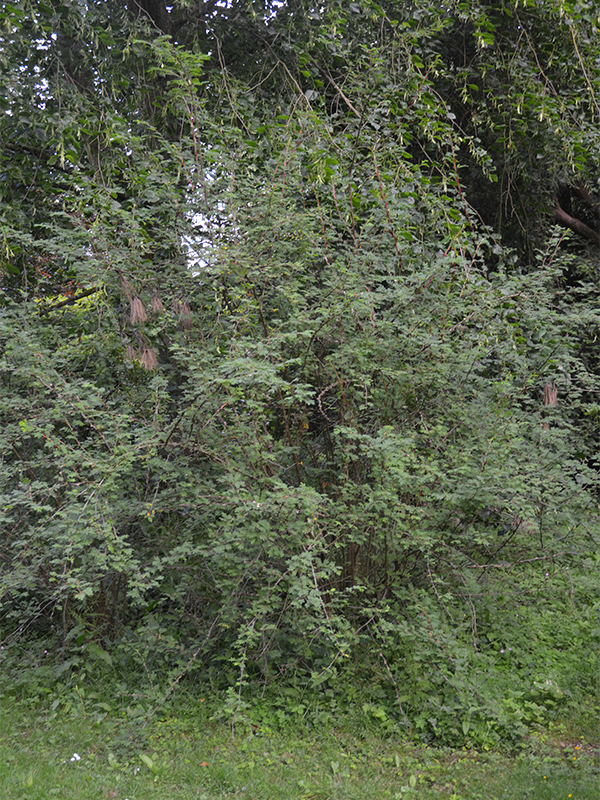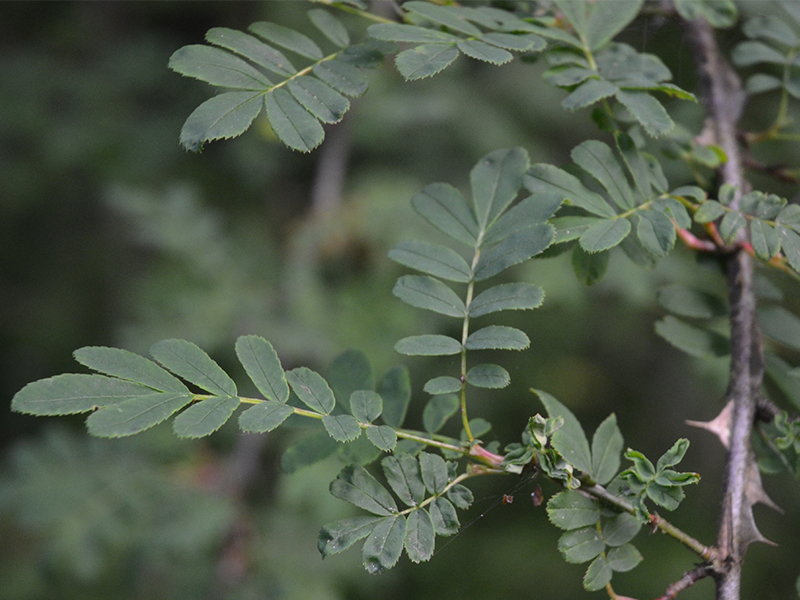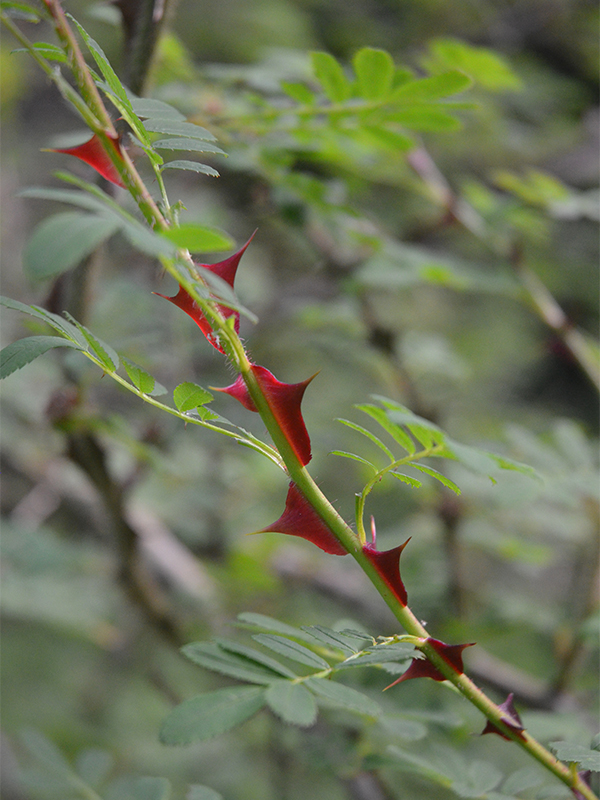
Woody > Rosa > Rosa sericea > Rosa sericea f. pteracantha subsp. omeiensis
Rosa sericea
f. pteracantha ssp. omeiensis
Winged Thorn Rose
Origin: Native to western China.
| Family |
| Rosaceae |
| Genus |
| Rosa |
| Species |
| sericea |
| Category |
| Woody |
| Type |
| Shrub (deciduous) |
| Forma |
| pteracantha |
| Subspecies |
| omeiensis |
| USDA Hardiness Zone |
| 7b - 8a |
| RHS Hardiness Zone |
| H5 |
| Temperature (°C) |
| -15 - (-10) |
| Temperature (°F) |
| 5 - 14 |
| Height |
| 1.5 - 2.5 m |
| Spread |
| 1.5 - 2.5 m |
Photographs
Description and Growing Information
Flowering Period
| Landscape |
| Flower borders and beds, cottage, informal gardens and wildlife gardens. |
| Cultivation |
| Prefers full sun and partial-shade. Plant in fertile, humus-rich, moist but well-drained soil. |
| Shape |
| Upright and bushy. |
| Growth |
| Fast |
| Pests |
| Aphids, rose root aphid, rose leafhopper, scale insects, large rose sawfly, rose leaf-rolling sawfly and rose slugworm may be a problem. Black spot, rose dieback, grey mould, rose rust, rose powdery mildew, downy mildew, rose sickness, replant disease and a virus may occur. |
| Bark/Stem Description |
| Large, flat prickles on the young growth. |
| Leaf Description |
| Neat, fern-like leaves. |
| Flower Description |
| Four-petaled flowers that appear in summer. |
| Fruit Description |
| Small rose hips appear after the flowers. |
| Colour Description |
| The prickles are a crimson red. The leaves are green. The flowers are a whitish-cream. The fruit or rose hips are a reddish-orange. |
| Notable Specimens |
| Westonbirt, The National Arboretum, Tetbury, Gloucestershire, England. |
| Propagation |
| Hardwood cuttings in late summer or autumn and seed. |


